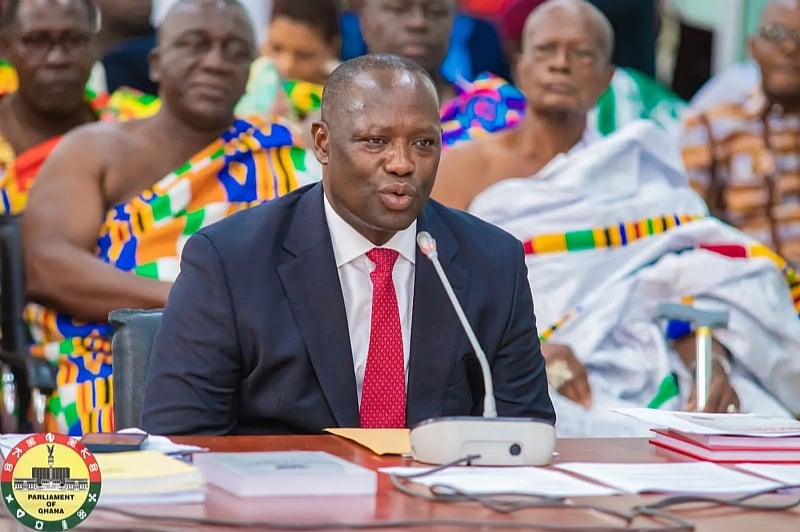The Damang Mine, a significant gold resource in Ghana, recently found itself at the center of a dispute between the Ghanaian government and Gold Fields Ghana Limited, the multinational corporation operating the mine. The government’s initial decision to not renew Gold Fields’ lease, citing operational and regulatory breaches, sparked intense debate within the industry. Some lauded the move as a necessary step towards greater national control over mineral resources, while others expressed concerns about the potential negative impact on foreign investment and the precedent it set. The government’s directive for Gold Fields to cease operations and hand over control of the mine loomed, threatening jobs and economic activity in the region.
However, in a dramatic turn of events, the government and Gold Fields engaged in further discussions, ultimately reaching a transitional agreement that averted the immediate shutdown of the Damang Mine. The agreement grants Abosso Gold Fields Limited, a subsidiary of Gold Fields, a 12-month interim lease, providing a crucial window for both parties to chart a path forward. This interim lease offers a temporary reprieve, allowing for continued operations while longer-term arrangements are solidified. The agreement is subject to parliamentary approval in May 2025, adding another layer of scrutiny and ensuring democratic oversight of the process. Importantly, the new lease lays the groundwork for eventual Ghanaian ownership of the mine, aligning with the government’s objective of increasing national participation in the exploitation of its mineral wealth.
The transitional agreement outlines specific operational modalities for the Damang Mine during the 12-month period. Gold Fields is permitted to resume open-pit mining activities, a crucial component of its operations. This resumption not only secures jobs for the workforce but also generates much-needed revenue for the company and the Ghanaian economy. In addition to open-pit mining, the agreement mandates the conducting of feasibility studies to comprehensively assess the remaining reserves and determine the economic lifespan of the mine. This crucial information will inform future decisions regarding the mine’s operation and potential expansion. Furthermore, the processing of stockpiled ore will continue under the watchful eye of a joint management team comprising officials from both the government and Gold Fields. This collaborative approach ensures transparency and shared responsibility in managing the existing resources.
The agreement between the Ghanaian government and Gold Fields highlights the delicate balance between attracting foreign investment and maximizing national benefit from natural resources. The government’s initial stance reflected a desire to assert greater control over its mineral wealth and ensure compliance with regulations. However, the subsequent negotiations demonstrated a willingness to engage in constructive dialogue and find a mutually beneficial solution. The 12-month lease provides a bridge to eventual Ghanaian ownership, allowing for a gradual transition and minimizing disruption to ongoing operations. This approach signifies the government’s commitment to responsible resource management and its recognition of the important role foreign investment plays in the mining sector.
The Damang Mine agreement serves as a potential model for future negotiations regarding mining leases in Ghana. It emphasizes the importance of open communication, collaboration, and a shared vision for sustainable development. By balancing the interests of foreign investors with the long-term goals of the nation, the government aims to create a win-win scenario that fosters economic growth while safeguarding national resources. The agreement also underscores the need for clear regulatory frameworks and consistent enforcement to ensure responsible mining practices and minimize environmental impact. Furthermore, it highlights the importance of involving local communities in decision-making processes related to mining activities, ensuring that their concerns and needs are addressed.
Beyond the Damang Mine, the agreement alludes to ongoing discussions between the government and Gold Fields regarding the Tarkwa Mine lease, which is set to expire in 2027. The commitment to constructive engagement on the future of the Tarkwa Mine signals a willingness to apply the lessons learned from the Damang negotiations to other mining operations in the country. This proactive approach demonstrates the government’s commitment to long-term planning and its desire to establish a stable and predictable environment for mining investments. The outcome of the Tarkwa Mine negotiations will be closely watched by industry stakeholders and will likely serve as a further indicator of the government’s evolving strategy for managing its mineral resources. By prioritizing dialogue, collaboration, and a balanced approach to foreign investment, Ghana aims to maximize the benefits of its mining sector while protecting its national interests.














